Atomic Age Scout
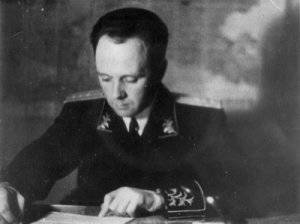 In August, 1949 was successfully tested “Product C” in the Land of Soviets. This event had its own background, connected with the effective activity of the Soviet scientific and technical intelligence. Vladimir Borisovich Barkovsky, a foreign intelligence colonel, was a direct participant in the first and subsequent measures to develop the atomic problem. His name is on a par with the names of such legendary scouts as Rudolf Abel, Leonid Kvasnikov, members of the "Cambridge Five".
In August, 1949 was successfully tested “Product C” in the Land of Soviets. This event had its own background, connected with the effective activity of the Soviet scientific and technical intelligence. Vladimir Borisovich Barkovsky, a foreign intelligence colonel, was a direct participant in the first and subsequent measures to develop the atomic problem. His name is on a par with the names of such legendary scouts as Rudolf Abel, Leonid Kvasnikov, members of the "Cambridge Five".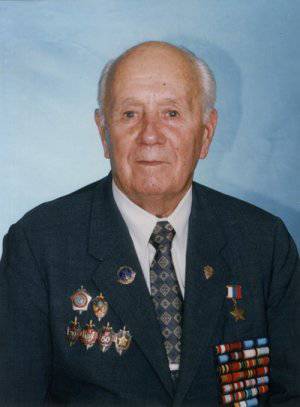 The future Hero of Russia, an outstanding intelligence officer 30-80-ies of the last century, one of the leaders of scientific, technical and foreign intelligence, was born in the Russian black-earth strip in the city of Belgorod, Kursk province in 1913 year, 16 October. After graduating from high school with 1930, he worked as a mechanic at the plant and at the same time studied at the evening working school. For him, life in the working environment was a good school: he developed respect for work, pride in his profession, discipline, and an awareness of his interest in the conscientious fulfillment of the assigned task.
The future Hero of Russia, an outstanding intelligence officer 30-80-ies of the last century, one of the leaders of scientific, technical and foreign intelligence, was born in the Russian black-earth strip in the city of Belgorod, Kursk province in 1913 year, 16 October. After graduating from high school with 1930, he worked as a mechanic at the plant and at the same time studied at the evening working school. For him, life in the working environment was a good school: he developed respect for work, pride in his profession, discipline, and an awareness of his interest in the conscientious fulfillment of the assigned task.In 1934, Vladimir Borisovich entered the Moscow Machine-Tool Institute. In his student years he was actively involved in parachuting and gliding sports under the auspices of OSOVIAHIM at the Moscow Student Aero Club. After his graduation, he was assigned as a stock pilot to the Moscow Air Defense Fighter Regiment. He carried his passion for the sky through his whole life, becoming a constant participant in gliding competitions, and with age he became a judge of the all-union category in this sport.
Recalling those years, Vladimir Borisovich emphasized: “It was not difficult for my generation of young people of 30's to fit into the circle of requirements for a scout and find their place in intelligence. The very lifestyle of the youth of those years led us to this ... The country began to resemble a gigantic construction site, and selfless, hard work became the norm of life. ”
Barkovsky had not yet graduated from the institute, as in the spring of 1939 of the year, by decision of the Central Committee of the CPSU (b), he was sent to work for the state security organs and determined for foreign intelligence. So Vladimir Borisovich was among the listeners of the first sets in the special purpose intelligence school created a year before. And he found out about it only in the intelligence school itself. As Vladimir Borisovich recalled, he was told here: “From now on, forget that you are an engineer. Now you are only a scout. ” “My consent,” he said, “nobody asked. They said - you will be a scout. So I became ... ".
But life decreed that he, too, became an engineer when he began working in the area of scientific and technical intelligence (NTR). The fellow students of his graduation and other pre-war kits assumed the brunt of the work during the years of the Great Patriotic War in dozens of foreign residencies and in the rear of the German troops: in the underground, special partisan detachments, reconnaissance and sabotage groups.
In February 1941, foreign intelligence officer Barkovsky arrived in London as a “general intelligence officer." However, due to the basic engineering training, he was allocated a section of work with scientists and technical experts - there were more than ten of them. But there were also sources of political and military-strategic information - they were extremely important in conditions when the threat of war became inevitable for the USSR. Still, the profile of science and technology prevailed in Barkovsky's work: he began to specialize in working with those sources that were destined to put a practical start to the post-war trend in foreign intelligence - scientific and technical.
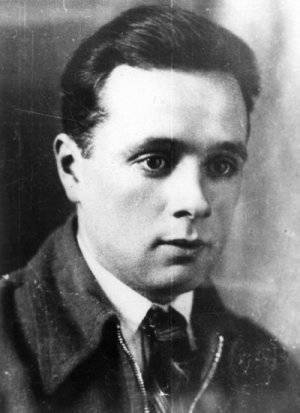 Memorial Sunday 22 June, recalls Vladimir Borisovich, he met in the suburban residence of the Soviet embassy, where families of employees were located away from the German bombings. The news of the German attack on the Soviet Union was issued to the scouts of the London residency by order: to immediately begin the implementation of what the Motherland would require.
Memorial Sunday 22 June, recalls Vladimir Borisovich, he met in the suburban residence of the Soviet embassy, where families of employees were located away from the German bombings. The news of the German attack on the Soviet Union was issued to the scouts of the London residency by order: to immediately begin the implementation of what the Motherland would require. About this time, Vladimir Borisovich said: “The labor pace has increased so much that now you remember, not without surprise, as soon as you manage to cope ... But all the difficulties were pushed into the background by the consciousness of the great danger hanging over our country, passionate aspiration, although far from the Motherland , stand up to her defense with all available means. ”
The energetic, impulsive, but strictly organized nature of Barkovsky, who received life quenching at the factory and the workers' school, at the institute and the flying club, at the reconnaissance school and the central reconnaissance apparatus, was able to quickly adapt to the performance of reconnaissance missions in wartime conditions.
Among valuable sources of information on the basis of scientific and technological research, Barkovsky worked with doctors of sciences and qualified engineers in aviation, military electronics, chemistry and nuclear issues. As a result, already in the first year of the war, it was possible to obtain a lot of important information: about the design features of the first samples of English radar equipment, about non-ferrous metals, their alloys and substitutes, about the magnetic protection of ships, as well as about radio communications and target beacons for bomber aircraft .
Barkovsky's special attention was paid to the atomic problem. One of the sources regularly handed over intelligence materials that the British received from the Americans until the very end of the war, and mainly on the issues of uranium-235 metallurgy and plutonium.
The expansion of tasks in the area of scientific and technological revolution caused an urgent need to replenish the network of information sources. The question arose of reaching them with the help of the gunners, who have connections among scientists and specialists. Thus, among the useful sources, Barkovsky had an Englishman who had access to a centralized account of British scientists.
According to the memoirs of Vladimir Borisovich, valuable sources in this country among specialists were attracted to work with intelligence mainly on an ideological basis, first of all it was anti-fascist sentiment. The development of such potential sources was carried out in an accelerated mode, in fact in the form of a direct offer. This was due to an acute shortage of time among the staff of the residency. The process of attracting to work with Soviet intelligence contributed, of course, to the situation of military confrontation between Britain and Germany. Our intelligence officers had to work in the conditions of the continuous bombardment of London, so the threat from Nazi Germany was quite real for the anti-fascist British ...
Only in 1946, Barkovsky returned to his homeland. In the central intelligence apparatus, he held senior positions, traveled to the United States and Western Europe. Over the years of work abroad and at the Center, Barkovsky has gone from an ordinary intelligence officer and resident to the head of a large division - the American department.
While working under the NTR abroad and at the Center, Barkovsky supervised familiar problems in the field of nuclear energy, in particular, for a long time led a group of employees in this field in the New York residency.
In the office stories Foreign intelligence at its headquarters in Yasenevo has a stand with portraits of Barkovsky’s associates — Leonid Romanovich Kvasnikov, Alexander Semenovich Feklisov, Anatoly Antonovich Yatskov, and Vladimir Borisovich himself. He informs visitors of the office that scientific and technical intelligence is one of the main directions in the activities of Soviet foreign intelligence. On the stand, the main problems of the scientific and technological revolution are atomic energy and atomic energy. weapon (operation “Enormous”), radio engineering and radio electronics (“Rainbow”), aviation and rocket technology (“Air”). All these operations from the beginning of 1940's to 1960's were related to Barkovsky.
The information personally received by Barkovsky and the scouts of the teams he led abroad and at the Center made it possible not only to strengthen the military potential of the Soviet state with the help of the created atomic weapons, but also to promote the atom in civilian life. For in 1954, in the USSR, for the first time in the world, a nuclear power station was commissioned. And by the end of the 1940s, our army, aviation and the fleet radar systems. The MIG-15 fighter jet was put into service by this time and in 1950 gained air supremacy over the American Sabers during the Korean War.
29 August 1949 was the birthday of the Soviet atomic bomb. It was on that day that the United States lost its monopoly on nuclear weapons. By this time, the US military plans planned a nuclear attack on the USSR with the date 1 January 1950. The disruption of these plans was preceded by the brilliantly carried out by Soviet intelligence (state security and military) operation to infiltrate the American "Manhattan Project", the most secret secret in America. It was the triumph of Soviet intelligence, among them - Vladimir Borisovich Barkovsky.
* * *
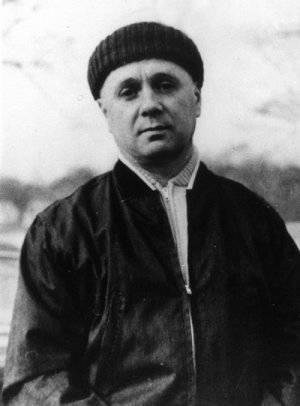 Several generations of nuclear physicists, together with the intelligence officers, celebrated the fiftieth anniversary of the first atomic bomb of the national atom bomb. Knowing firsthand what a nuclear explosion is, academician Evgeny Velikhov defined the state significance of this event in the following way: “Thanks to our work on nuclear weapons, we were able to develop our science and make its achievements competitive on the world market. Without an atomic bomb, we would be a secondary power. "
Several generations of nuclear physicists, together with the intelligence officers, celebrated the fiftieth anniversary of the first atomic bomb of the national atom bomb. Knowing firsthand what a nuclear explosion is, academician Evgeny Velikhov defined the state significance of this event in the following way: “Thanks to our work on nuclear weapons, we were able to develop our science and make its achievements competitive on the world market. Without an atomic bomb, we would be a secondary power. "Vladimir Borisovich himself, taking an active position in promoting opinions on the effectiveness of the NTR in the interests of the state, for many years published articles in the special and open press, gave lectures in various departments, participated in symposia and gave interviews to the press and on television. Most often the question concerned the contribution of intelligence to the creation in the USSR of its own nuclear weapons.
This is how Vladimir Borisovich determines the place of intelligence in this process: “Intelligence provided valuable top-secret information, and our scientists worked on the problem. Everyone did their own thing. But the most reliable and promising scientific and technical information becomes useful only when it falls on fertile soil, when its meaning is understood. It happened with information about atomic weapons. ”
It really is. As academician I.V. Kurchatov, “the contribution of intelligence is indisputable, many dead ends and mistakes were avoided,” academician A.F. Ioffe, in turn, noted: "I have not met a single false indication."
Speaking about the post-war years of our intelligence work on the problem of nuclear energy, Vladimir Borisovich, in his speeches, also emphasized that "in 50-s, information was obtained about powerful power reactors and reactors for submarines."
The state way of thinking of Barkovsky is also reflected in this statement: “In realizing the contribution of intelligence officers to the creation of domestic atomic weapons, scientific and technological revolution never opposed itself to the achievements of domestic physicists, designers and production workers, because intelligence officers did not do calculations, did not conduct experiments, did not go into the details of atomic construction bombs.
* * *
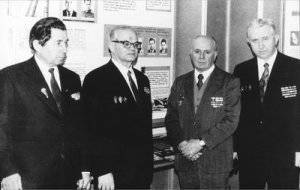 "The fighter of the invisible front" Vladimir Borisovich Barkovsky in the middle of the twentieth century was one of the active leaders of the most important direction of modern intelligence activities, called scientific and technical intelligence. For many decades abroad, in the headquarters of foreign intelligence and in the teaching field within the walls of the forge of intelligence personnel, he viewed its activities as a special social phenomenon deeply rooted in the needs of ensuring national security and the geopolitical interests of our Motherland.
"The fighter of the invisible front" Vladimir Borisovich Barkovsky in the middle of the twentieth century was one of the active leaders of the most important direction of modern intelligence activities, called scientific and technical intelligence. For many decades abroad, in the headquarters of foreign intelligence and in the teaching field within the walls of the forge of intelligence personnel, he viewed its activities as a special social phenomenon deeply rooted in the needs of ensuring national security and the geopolitical interests of our Motherland. Back in 1949, Barkovsky began to give lectures at VRSh - Higher Intelligence School, in 1954 – 1956 he worked there at the intelligence department as deputy chief, who was another outstanding intelligence officer, Ivan Ivanovich Agayants. After working abroad and in the central apparatus of the NTR, he moved to the Red Banner Institute in 1969. And again to the Department of Intelligence, where until his retirement in 1984, he worked as a professor.
Barkovsky's educational, scientific, and journalistic work is a rich heritage in the form of lectures, practical aids, textbooks, teaching materials, monographs, theses and articles in special collections, and after retirement in open press. He wrote even the work on the ethics of intelligence activities. For 1949 – 2000 years, Vladimir Borisovich prepared more than 50 works with a total volume of over 3.000 pages.
Barkovsky began to engage in active scientific work after joining the Red Banner Institute - an educational institution for training intelligence personnel. But besides the theory and practice of intelligence activities, he remained the same and talented chronicler of the history of scientific and technical intelligence. His deeply grounded works in this field are today assessed as examples of impressive achievements in one of the sections of the social history of Russian science and technology.
The credo of the intelligence officer, scientist and citizen Barkovsky in assessing the state significance of intelligence is very clear: "Intelligence is needed so that the country's leadership clearly knows the plans and plans of the opposite side ... For intelligence has not a constant enemy, but a constant interest."
Vladimir Borisovich gave six decades of satisfaction to the satisfaction of this “constant interest”. Being retired, he was not eliminated from work, but took part in the upbringing of the younger generation of intelligence officers, was engaged in research and journalistic activities.
Throughout his life, the intelligence officer and veteran of state security Barkovsky confessed one main commandment - loyalty to the motherland. He left us a covenant: "In my deep conviction, the scout should be fully characterized by such features as patriotism, dedication to the cause you serve, decency, complete submission to the interests of the service."
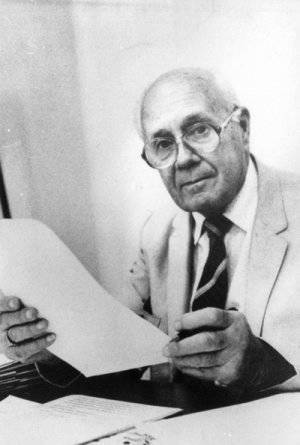 Veteran Barkovsky collected extensive material on the history of scientific and technical intelligence - Russian, Soviet, Russian. He became a member of the group of authors of the fundamental six-volume book, Essays on the History of Russian Intelligence, and since its inception, a member of the regional public organization Foreign Intelligence Veterans.
Veteran Barkovsky collected extensive material on the history of scientific and technical intelligence - Russian, Soviet, Russian. He became a member of the group of authors of the fundamental six-volume book, Essays on the History of Russian Intelligence, and since its inception, a member of the regional public organization Foreign Intelligence Veterans.Therefore, the decision of the Academic Council of the Foreign Intelligence Academy of 20 in March 2001 was deeply justified: “For making a great contribution to ensuring the security of our country and actively participating in the training of intelligence personnel, retired colonel Vladimir Borisovich was awarded the title“ Honorary Professor of the Academy of Foreign Intelligence ”.
For the high results achieved in ensuring the state security of our Fatherland, Vladimir Borisovich Barkovsky’s sixty-year journey in intelligence has been awarded state awards. In the war and postwar years, he was awarded the Order of the Red Banner, three Orders of the Red Banner of Labor, the Orders of the Patriotic War, the Red Star, the Badge of Honor and many medals. Vladimir Borisovich is an honorary employee of the state security bodies and was awarded the sign “For Intelligence Service”.
15 June 1996 by decree of the President of the Russian Federation for the outstanding contribution to ensuring the national security of the Fatherland, the title of Hero of Russia was awarded immediately to five veterans of the Foreign Intelligence Service. Among them is Colonel Barkovsky.
This article was prepared by me for its 90 anniversary. In February, 2003, Vladimir Borisovich read it. I expected to publish material for his anniversary. Alas, the talented and courageous intelligence officer did not live to him for less than three months and 21 July 2003 left us ...
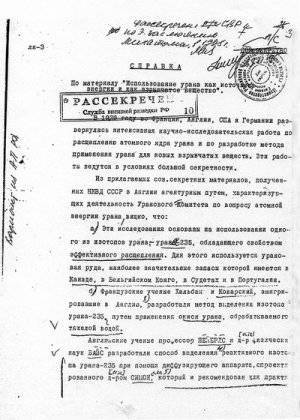
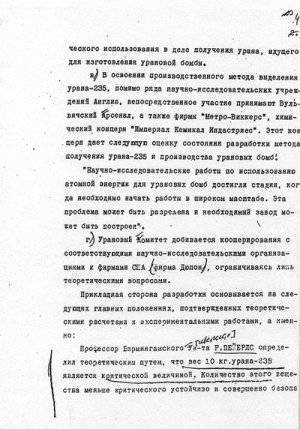
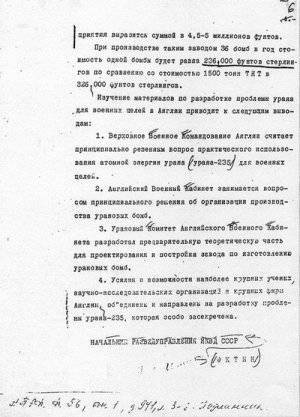
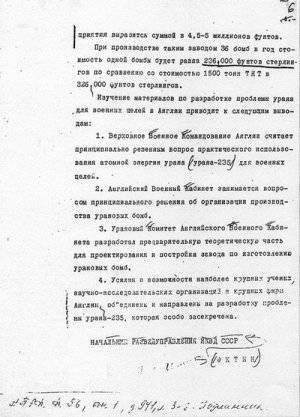
Information